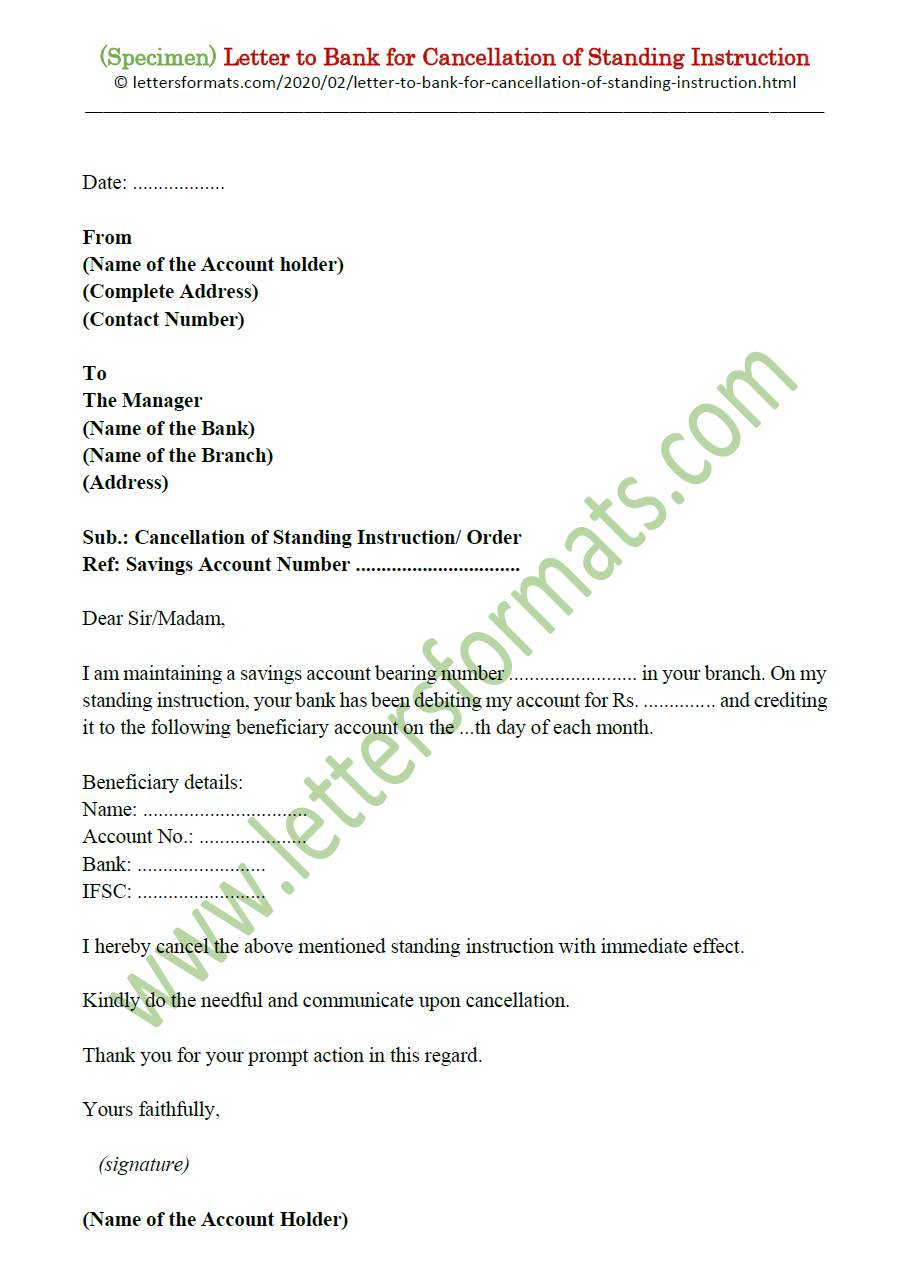Closing Your Bank Account: A Complete Guide
Closing a bank account might seem like a simple task, but it's essential to handle it correctly to avoid potential headaches. Whether you're switching banks, consolidating accounts, or simply dissatisfied with your current financial institution, understanding the process is crucial. This guide will walk you through everything you need to know about closing a bank account, from drafting a formal request to navigating potential challenges.
Requesting account termination can often feel daunting, but with the right information, it can be a seamless process. A well-written account closure letter serves as an official record of your request and protects you from potential issues down the line. This document is the cornerstone of the closure process, ensuring clarity and minimizing the chance of errors. Knowing the proper procedures and having a clear understanding of what to expect can make the entire experience significantly less stressful.
The practice of formally requesting bank account closure through written communication has been around for as long as banking institutions themselves. Initially, these requests were primarily handled in person. As banking evolved, written letters became the standard, offering a verifiable record for both the customer and the bank. This evolution reflects the increasing complexity of financial transactions and the need for clear documentation. Even with the rise of online banking, the formal written request for account termination often remains the preferred method for many institutions, maintaining a clear and legally sound process.
The importance of a properly written bank account closure letter cannot be overstated. It acts as a legal document, providing proof of your intention to sever ties with the bank. This written record is critical for resolving any future disputes regarding transactions, fees, or outstanding balances. A clear and concise letter eliminates ambiguity, ensuring that your request is processed efficiently and effectively.
Several issues can arise if a bank account is not closed correctly. These can include unauthorized transactions, continued fees, and difficulty opening new accounts. A formally documented account closure request helps mitigate these risks. By following the correct procedures and ensuring clear communication with your bank, you can avoid potential complications and protect your financial well-being.
Before closing your account, ensure all automatic payments and deposits are rerouted to your new account. Failing to do so could result in missed payments and returned checks, potentially impacting your credit score. Also, check for any outstanding checks or transactions that haven't cleared yet. These should be addressed before initiating the closure process.
Benefits of a Formal Cancellation Letter:
1. Clear Communication: A written letter leaves no room for misinterpretation. It explicitly states your intent to close the account, preventing any confusion.
2. Legal Protection: The letter acts as a legal document, protecting you in case of disputes or unauthorized activities after the account is closed.
3. Efficient Processing: A well-structured letter ensures your request is processed quickly and accurately by the bank.
Step-by-Step Guide for Writing a Bank Account Cancellation Letter:
1. Include your full name, address, and account number.
2. Clearly state your intention to close the account.
3. Specify the date you want the account closed.
4. Request confirmation of the closure in writing.
5. Provide instructions for disbursing any remaining funds.
6. Sign and date the letter.
Advantages and Disadvantages of Closing a Bank Account
| Advantages | Disadvantages |
|---|---|
| Avoid unwanted fees | Potential inconvenience if not planned correctly |
| Simplify finances | Time required to open a new account and transfer services |
Best Practices:
1. Keep a copy of the letter for your records.
2. Follow up with the bank to confirm closure.
3. Monitor your account statements for any activity after closure.
4. Review your credit report to ensure the closure is reflected accurately.
5. Destroy any debit or credit cards associated with the closed account.
FAQs:
1. What information should be included in a bank account closure letter? Your name, address, account number, closure date, and instructions for remaining funds.
2. How long does it take to close a bank account? Typically, a few business days, but it can vary depending on the bank.
3. What happens to any remaining funds in the account? You can request a check, transfer to another account, or cash withdrawal.
4. Can I close a joint account by myself? Usually, both account holders need to sign the closure request.
5. What if I have automatic payments linked to the account? Cancel or redirect them before closing the account.
6. Can I reopen a closed account? It depends on the bank's policy. You might need to open a new account.
7. Will closing a bank account affect my credit score? Generally, no, but ensure all outstanding balances are settled.
8. What should I do if I suspect unauthorized activity after closing the account? Contact the bank immediately.
Closing a bank account is a straightforward process when handled correctly. By following the guidelines in this guide and crafting a clear and concise account closure letter, you can ensure a smooth transition and avoid potential complications. Remember to keep records of all correspondence with your bank and monitor your accounts even after closure. This proactive approach will help protect your finances and provide peace of mind.
The ability to terminate a bank account effectively is a crucial aspect of managing personal finances. A well-crafted account closure letter serves as the cornerstone of this process, providing clarity, legal protection, and peace of mind. Understanding the nuances of closing a bank account empowers individuals to maintain control over their financial well-being. By following best practices and taking proactive steps, you can ensure a smooth and hassle-free experience. Don't hesitate to contact your bank directly if you have any questions or require further assistance with closing your account. A well-managed financial life starts with informed decisions and clear communication.
Tragedy strikes highway 41 today
Conquering the california dmv your guide to practice tests
Unlocking chemistry exploring potential energy diagrams














